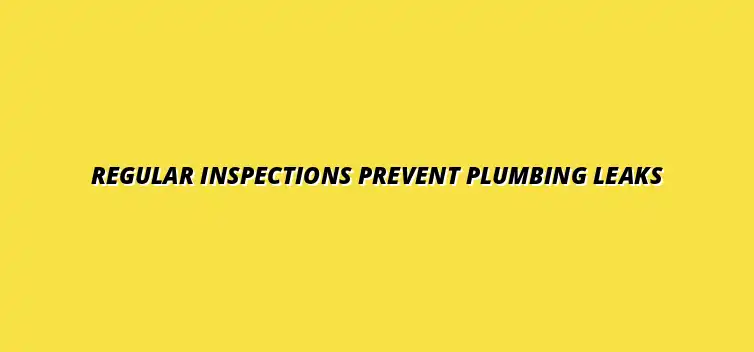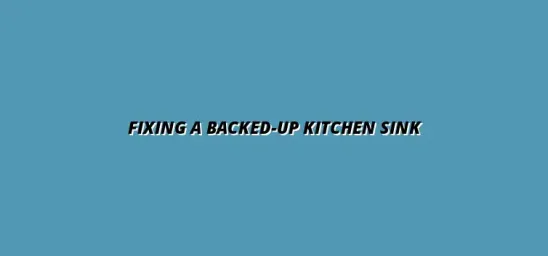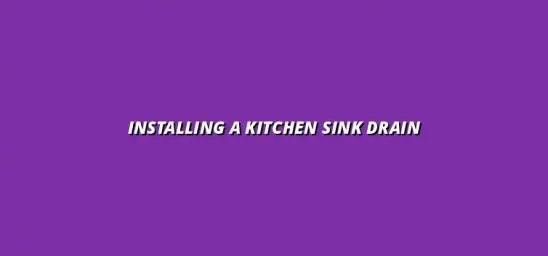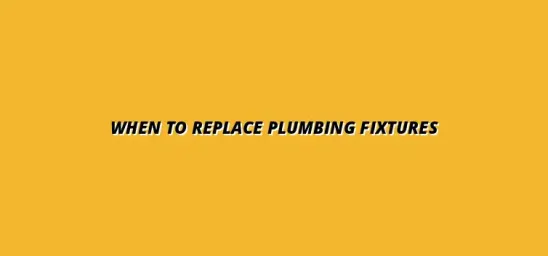
Regular Inspections Prevent Plumbing Leaks
Understanding the Importance of Preventing Plumbing Leaks
Preventing plumbing leaks is not just about fixing a problem; it’s about protecting your home and finances. Even small leaks can lead to significant issues over time, making it essential to understand why prevention is crucial. By taking proactive measures, you can save yourself a lot of stress and money in the long run! For example, regular checks, as outlined in this guide to essential bathroom plumbing checks, can significantly reduce the risk of costly repairs.
Impact of Plumbing Leaks on Your Home and Finances
When it comes to plumbing leaks, the effects can ripple through your entire home. One of the most immediate concerns is the potential for water damage, which can compromise structural integrity and lead to costly repairs. Moreover, leaks can inflate your water bills, putting a dent in your monthly expenses.
The Cost Implications of Water Damage
Water damage can cause serious issues in your home, leading to a range of expenses that can add up quickly. Here are some cost implications you should be aware of:
- Structural repairs from weakened beams and walls
- Replacement of damaged flooring or drywall
- Professional mold remediation services
- Increased water bills due to the ongoing leak
By preventing leaks, you can avoid these financial burdens and keep your home safe and sound! Understanding the frequency of plumbing inspections is also crucial; check out this helpful article on plumbing inspection frequency.
Health Risks Associated with Hidden Leaks
Hidden plumbing leaks can pose significant health risks that often go unnoticed until it's too late. When water seeps into walls and floors, it can create a breeding ground for mold and mildew, which can affect indoor air quality. This is especially concerning for individuals with allergies or respiratory issues.
- Increased risk of mold growth
- Potential for unpleasant odors
- Impact on occupants’ health
Taking steps to identify and prevent leaks can protect not only your home but also your health! Learning how to unclog a blocked toilet drain is a simple preventative measure.
How Regular Inspections Mitigate Plumbing Issues
Regular plumbing inspections are a proactive approach to identifying issues before they become significant problems. By scheduling these inspections, homeowners can catch potential leaks early and save themselves from costly repairs and damages. It’s a wise investment for any homeowner!
The Role of Preventive Maintenance in Home Plumbing
Preventive maintenance is key to ensuring your plumbing system continues to function properly. By regularly checking your plumbing, you can extend the life of your pipes and fixtures. Here are some benefits of preventive maintenance:
- Early detection of leaks and issues
- Increased lifespan of plumbing systems
- Improved water efficiency
Being proactive about maintenance helps create a peaceful environment in your home! Regular maintenance can also help prevent plumbing emergencies.
Identifying Common Plumbing Problems Before They Escalate
During regular inspections, you can identify common plumbing problems that might otherwise go unnoticed. Early detection can prevent these issues from escalating and costing you more money. Some common problems to look for include:
- Corroded pipes
- Worn-out seals and gaskets
- Clogged drains
- Unusual water pressure changes
Being aware of these issues can help keep your plumbing in top shape! For water heater maintenance, consider this advice on annual water heater inspections.
Addressing Common Questions About Plumbing Leak Prevention
What Are the Early Warning Signs of Plumbing Leaks?
When it comes to detecting plumbing leaks early, it's crucial to be aware of the warning signs. These signs can help you catch problems before they escalate into something more severe. Noticing them early can save you both time and money in the long run!
Visual Indicators to Look Out For
There are several visual cues that might indicate a plumbing leak in your home. For instance, you should check for:
- Water stains on walls or ceilings
- Peeling or bubbling paint
- Mold or mildew growth
- Pooling water around fixtures
If you observe any of these signs, it's important to address them immediately. Ignoring visual indicators can lead to greater damage and expenses down the line! If you notice any of these, it's a sign your plumbing needs attention; learn more about the signs your plumbing needs attention.
Auditory Signs: Listening for Drips and Puddles
Sometimes, you can hear the warning signs of a plumbing leak long before you see them. Listen for:
- Continuous dripping sounds from faucets or pipes
- Unusual hissing noises when the water is off
- Sounds of rushing water behind walls
These sounds can often point to hidden leaks that need your attention. If you hear any strange noises, make sure to investigate further!
How to Prepare for a Plumbing Inspection
Preparing for a plumbing inspection can make the process smoother and more efficient. It's in your best interest to take a few steps before the plumber arrives. By being ready, you're making sure that the inspection can proceed without hiccups!
Steps Homeowners Should Take Before the Inspection
Here are some simple steps to consider before your plumbing inspection:
- Clear access to plumbing fixtures and areas
- Turn off appliances that use water
- Document any issues you've noticed
- Gather all relevant maintenance records
By preparing in advance, you ensure that your plumbing inspection goes as smoothly as possible. Plus, it helps the plumber focus on the important details!
Documents and Information to Have Ready for the Plumber
Having the right documents on hand can enhance your plumbing inspection experience. Be ready with:
- Previous inspection reports
- Details of any past plumbing repairs
- Warranties for fixtures and appliances
- Information about your water bill and usage
This information can help the plumber understand your plumbing system better. It can also provide valuable context for any problems you're facing! For those in Tyseley, Birmingham, consider contacting a local plumber.
Strategies for Maintaining Your Plumbing System
Regular Maintenance Tips for Homeowners
Maintaining your plumbing system is essential for preventing leaks and other issues. Regular upkeep can save you from costly repairs in the future! Here are some tips to keep your plumbing in top shape.
Best Practices for Keeping Pipes and Fixtures in Good Condition
To ensure your plumbing remains healthy, consider these best practices:
- Inspect pipes and fittings for signs of wear
- Flush your pipes with hot water periodically
- Clean faucet aerators and showerheads
- Check for leaks under sinks and around toilets
By following these practices, you're actively protecting your home from potential plumbing issues!
Seasonal Maintenance Routines to Prevent Plumbing Problems
Implementing seasonal maintenance routines can help you stay ahead of plumbing issues. Here’s a simple checklist to consider:
- Winterize outdoor faucets before freezing temperatures
- Check sump pumps in spring to prevent flooding
- Inspect drainage systems after heavy rains
- Clear gutters and downspouts regularly
Adopting a seasonal maintenance routine can make a big difference in the longevity of your plumbing system. It’s all about being proactive!
The Benefits of Investing in Plumbing Inspections
Investing in plumbing inspections is a smart move for homeowners. Not only does it help prevent leaks, but it can also lead to significant savings in the long run. Let's explore these benefits further!
Long-term Savings from Preventive Care
Regular plumbing inspections can help you save money over time. Here are some key financial benefits:
- Early detection of leaks reduces repair costs
- Prevention of extensive water damage
- Lower water bills due to efficient plumbing
- Extended lifespan of plumbing fixtures and pipes
The initial investment in inspections can pay off significantly when you consider the potential savings!
Enhancing Home Value Through Regular Maintenance
Regular plumbing inspections contribute positively to your home's value. By maintaining your plumbing system, you can:
- Make your home more appealing to buyers
- Reduce the chance of pre-sale repairs
- Show a history of responsible home maintenance
- Boost confidence in your property's condition
All these factors can make a real difference when it comes time to sell your home. A little maintenance goes a long way!
Final Insights on Preventing Plumbing Leaks
Recapping the Importance of Regular Inspections
As we've discussed, regular plumbing inspections are essential for preventing leaks. They allow you to identify problems early and take action to avoid costly repairs. In short, staying proactive with your plumbing is the best strategy!
Summarizing Key Takeaways for Homeowners
Here are some key points every homeowner should remember:
- Actively look for visual and auditory signs of leaks
- Prepare thoroughly for plumbing inspections
- Implement regular maintenance routines
- Invest in inspections for long-term savings
Keeping these points in mind can help safeguard your home against plumbing issues!
Encouraging a Proactive Approach to Plumbing Maintenance
Finally, I encourage everyone to take a proactive approach to plumbing maintenance. This means being vigilant, scheduling regular inspections, and following best practices for upkeep. Your plumbing system will thank you!





Fixing a Backed-Up Kitchen Sink
Prepare Your Plumbing for Weather
Installing a Kitchen Sink Drain
When to Replace Plumbing Fixtures
Fixing a Jammed Garbage Disposal